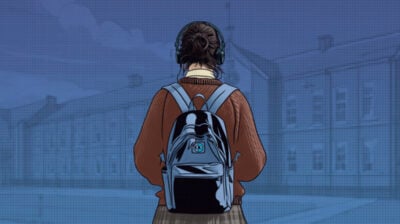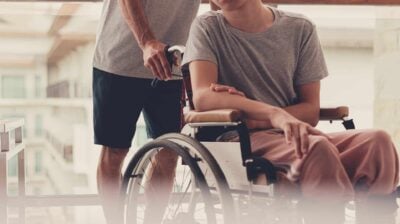10 things to avoid saying to someone with chronic pain
World Day Against Pain is a time to raise awareness for people living with chronic pain and their families.

To mark World Day Against Pain on 1 October, members of Chronic Pain Ireland have compiled a list through the campaign ‘mypainfeelslike…’ of things not to say to their friends and family who suffer from chronic pain.
Chronic pain is discomfort or pain that disrupts sleep and daily life. It persistently affects the person on and off all of the time or more than three months. Unlike most pain, it serves no protective function and degrades overall health.
This list aims to address the well-intentioned ignorance directed toward people who have chronic pain.
“Many people can feel isolated with their pain and think that others do not understand the impact it has on their life,” said Orla Spencer, Clinical Psychologist at Tallaght Hospital, Dublin. “They often struggle to explain the effect it’s having on their lives. While intentions are good, comments like the ones listed can be hurtful and inappropriate.”
The frequent responses often unknowingly inhibit people who suffer from chronic pain rather than provide comfort, as 89% of people who have chronic pain avoid discussing it with others, and 29% regularly avoid talking about it with loved ones.
- But you look so well
- Do you still have pain?
- You depend too much on your medication
- It’s all in your head
- Have you seen a psychiatrist?
- It’s just a matter of time
- You should learn to live with it
- You should try and get out more
- You should feel better by now
- Everyone has pain
“I encourage people to adopt a non-judgemental approach to someone with pain and to share the 10 things NOT to say to someone with chronic pain video on World Day Against Pain, 1 October.”
Broadcaster Andrea Hayes suffers from chronic pain. It feels, she described, “like a crushing feeling at the top of my neck that pushes down on my body all the time. But sometimes there is a shooting pain as well, almost like electric shocks.”
Because Hayes’ pain is invisible to everyone else, she often hears phrases such as, “but you look great” and “you don’t look like you’re in pain.”
“It can be exhausting explaining that although I can look well, I have persistent pain and the reality is I have to work to manage my pain every day through a range of means so I can live my life to the fullest,” she commented.
Her tip for people who are unsure how to respond to their loved ones who have chronic pain is effortless. “Simply saying ‘I believe you’ can really help someone with chronic pain,” Hayes said.
Some other ways to help someone with chronic pain are sympathizing with that person, offering to run an errand for them or bring them something they need, being a listener to that person and verbally recognizing that although they might look okay on the outside, they may not be on the inside. Acknowledge that this is something you might not understand but let them know they are strong for enduring it.
Feeling overwhelmed and want to talk to someone?
- Get anonymous support 24/7 with our text message support service
- Connect with a trained volunteer who will listen to you, and help you to move forward feeling better
- Whatsapp us now or free-text SPUNOUT to 50808 to begin.
- Find out more about our text message support service
If you are a customer of the 48 or An Post network or cannot get through using the ‘50808’ short code please text HELLO to 086 1800 280 (standard message rates may apply). Some smaller networks do not support short codes like ‘50808’.






